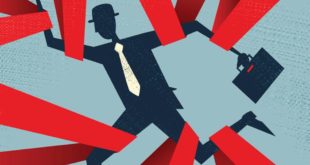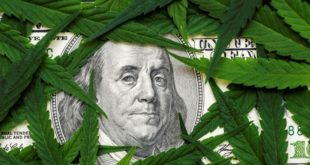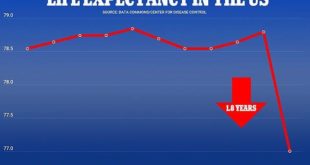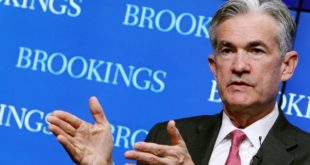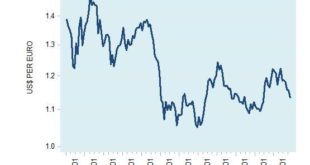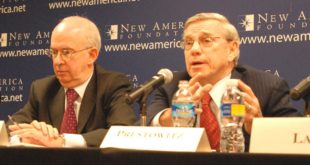One of the things people tend to appreciate throughout the year, and especially during the Christmas season, is statutory holidays. These days off are taken for granted by many, and few people stop to think about whether they have any drawbacks. But as any good economist will tell you, everything comes with tradeoffs, and holidays are no exception. The trick, then, is to figure out where the cost lies, and who, ultimately, is paying it. The True Cost of Statutory...
Read More »The Real Reason Politicians Want Legal Cannabis Is Tax Money
The latest two states to legalize recreational cannabis are New York and New Jersey. However, if one believes governors and legislators in those states have finally adopted a more libertarian view of the topic, one will be severely disappointed. Legalization of recreational cannabis in both states is driven by the need for tax revenue—tax revenue to plug the holes in state budgets for social programs, holes in the state budget that were exasperated by the failed...
Read More »Life Expectancy in 2020 Fell 2.3 Percent to 77 Years. Does This Justify the Covid Panic?
According to a new report released Wednesday by the Centers for Disease Control, the life expectancy at birth in the United States fell to 77.0 iyears n 2020, falling from 2019’s life expectancy of 78.8 years. The report also noted an increase of mortality with age-adjusted mortality in the US rising from 715.2 per 100,000 in 2019 to 836.4 per 100,000 in 2020. Media reporting on the CDC’s report provide a variety of statistics on one-year percentage changes, no doubt...
Read More »The Fed’s Dovish “Tapering” and the ECB
This week, the Federal Reserve gave the most dovish “hawkish” statement ever, an apparent aggressive tapering that, in reality, means maintaining very low rates and massive repurchases for longer. Inflation has skyrocketed and aggressive monetary policy is the key factor in understanding it. I already explained it in my article “The Myth of Cost-Push Inflation.” The Federal Reserve has finally recognized this and has made a U-turn in its policy of maintaining...
Read More »The Truth about Tulipmania
When the economics profession turns its attention to financial panics and crashes, the first episode mentioned is tulipmania. In fact, tulipmania has become a metaphor in the economics field. Should one look up tulipmania in The New Palgrave: A Dictionary of Economics, a discussion of the seventeenth century Dutch speculative mania will not be found. Guillermo Calvo (1987, p. 707), in his contribution to the Palgrave instead defines tulipmania as: “situations in...
Read More »Why “Macro” Thinking in Economics Is Such a Problem
As someone who teaches public finance (better termed the economics of government), I can’t count how many times I have heard politicians promise “comprehensive” reforms to some major problem. But what such efforts actually produce is always different from what is promised, because such achievements are beyond government’s competence. The more comprehensive the “reforms” (say, measured by the number of pages in a bill), the more adverse incentives undermining social...
Read More »Can Dikes Be Private?: An Argument against Public Goods Theory
The best that mankind ever knew: Freedom and life are earned by those alone Who conquer them each day anew. — Johann Wolfgang von Goethe1 According to many economists, we need the state to provide public goods.2 The assertion seems to be so crystal-clear that it is not even worth discussion in the mainstream. One typical and popular example of public goods in Germany is the case of dikes or levees. In Vahlens Kompendium der Wirtschaftstheorie und...
Read More »Who Will Inflate Faster? Europe or the Fed?
The price of the euro in terms of the US dollar closed at 1.135 in November, against 1.156 in October and 1.193 in November last year. The yearly growth rate of the price of the euro in US dollar terms fell to –4.8 percent in November from –0.7 percent in October. Some commentators are of the view that the US dollar is likely to weaken against the euro (i.e., the price of the euro in US dollar terms is likely to increase). The reason for this is the massive US...
Read More »Fauci on Your Phone?
If the Senate follows the House of Representatives's lead and passes the Immunization Infrastructure Modernization Act (HR 550), Americans who do not get the recommended number of covid vaccines can look forward to receiving a text like this: “This is Dr. Anthony Fauci. According to government records you have not yet received your monthly covid booster shot. Until you prove you are following vaccine protocols, your vaccine passport will be revoked, resulting in loss...
Read More »Conservatives and the Free Trade Straw Man
When Ronald Reagan officially announced his candidacy for president of the United States in November 1979, he called for the establishment of a large free trade zone encompassing the USA, Canada, and Mexico. Not surprisingly, the so-called free trade agreement better known as the North American Free Trade Agreement (NAFTA) resembled the usual “managed trade” that falls much more into the category of what Randall Holcombe calls “political capitalism.” Politics has a...
Read More » Swiss Economicblogs.org
Swiss Economicblogs.org

